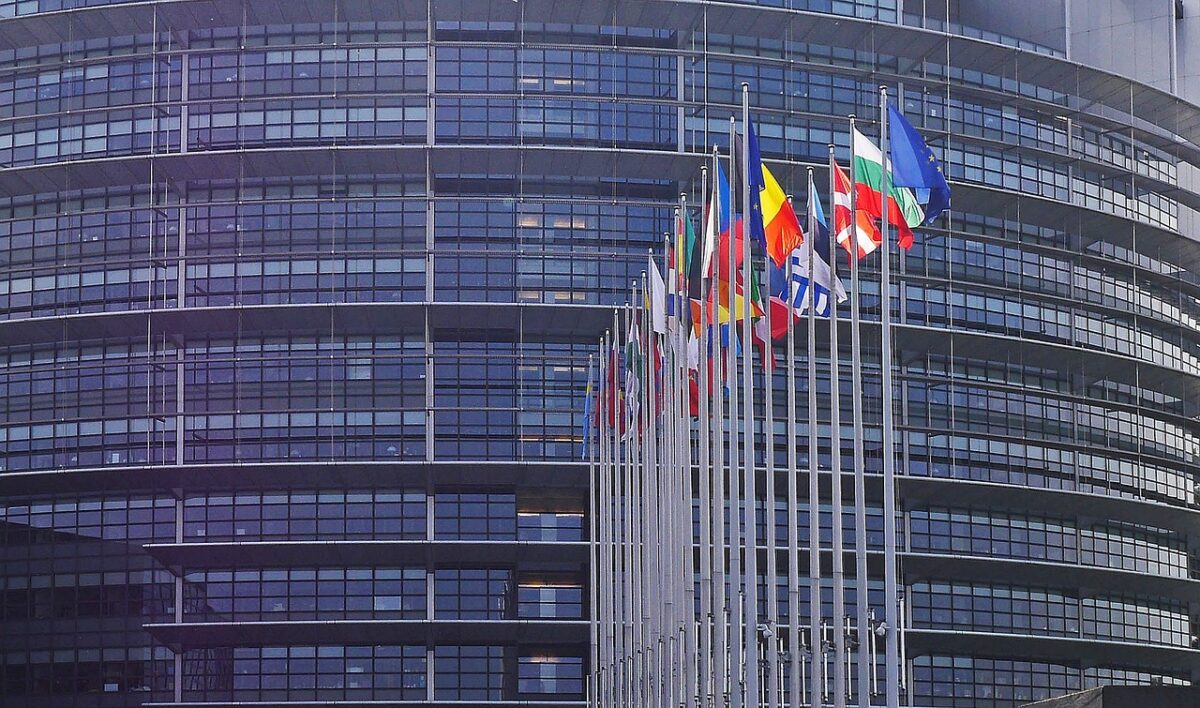The European Parliament yesterday adopted new legislation aimed at bolstering the European Union's (EU) renewable energy technology manufacturing sector.
Although Europe’s major solar lobby groups, the European Solar Manufacturing Council (ESMC) and SolarPower Europe, mostly welcome the Net-Zero Industry Act, they are divided over a clause related to non-EU-made technology used for tendered projects.
According to the Act, unspecified limitations should be set on procuring and tendering projects using net-zero technologies sourced from outside the EU. The aim of this is to not “exacerbate” dependencies on other countries for clean technologies, the legislation states.
But the policy director of Brussels-based solar association SolarPower Europe, Dries Acke, warns this requirement is a “red flag” for the solar sector and “for those committed to the EU’s energy security and climate goals.”
“It introduces pre-qualification criteria on local content, meaning that technologies that are partially produced outside Europe are not even allowed to bid into public auctions,” he said. “Two things can be true; We must work harder to support European solar manufacturing and Europe needs to be part of a globalised solar supply chain to meet climate and energy targets.”
Acke said including non-price criteria in auctions “positively rewards” sustainable and locally-produced technologies but it should be “phased in”.
Policy director of Braunschweig-based ESMC, Žygimantas Vaičiūnas, said the Act aligns “perfectly” with a previously published industry letter signed by over 40 European PV module manufacturers and associations.
The letter, published Nov. 16, encourages policymakers to include in the Act a clause stating that no more than half of a tendered project’s net-zero technology should originate from countries not part of the World Trade Organization (WTO) Agreement on Government Procurement (GPA).
Roughly 15 countries are on the WTO GPA list, but China, the world's leading module manufacturer, is not. According to Vaičiūnas, the clause aims to reduce China-made modules from being imported into the EU.
Meanwhile, Members of the European Parliament also supported creating the Net-Zero Industry Valleys initiative as part of the Act, which is aimed at expediting permit approvals by delegating environmental assessments to Member States.
Other parts of the Act state certain administrative restrictions should be simplified to speed up net-zero manufacturing opportunities and project roll-out. According to the Act, plants producing less than 1 GW per annum should be granted permits within six months and projects producing more than 1 GW per annum should be granted permits within nine months.
Manufacturing projects producing a yearly output of more than 1 GW should be awarded permits within 12 months, and production facilities producing less than 1 GW per annum should be awarded a permit within nine months.
This content is protected by copyright and may not be reused. If you want to cooperate with us and would like to reuse some of our content, please contact: editors@pv-magazine.com.



By submitting this form you agree to pv magazine using your data for the purposes of publishing your comment.
Your personal data will only be disclosed or otherwise transmitted to third parties for the purposes of spam filtering or if this is necessary for technical maintenance of the website. Any other transfer to third parties will not take place unless this is justified on the basis of applicable data protection regulations or if pv magazine is legally obliged to do so.
You may revoke this consent at any time with effect for the future, in which case your personal data will be deleted immediately. Otherwise, your data will be deleted if pv magazine has processed your request or the purpose of data storage is fulfilled.
Further information on data privacy can be found in our Data Protection Policy.